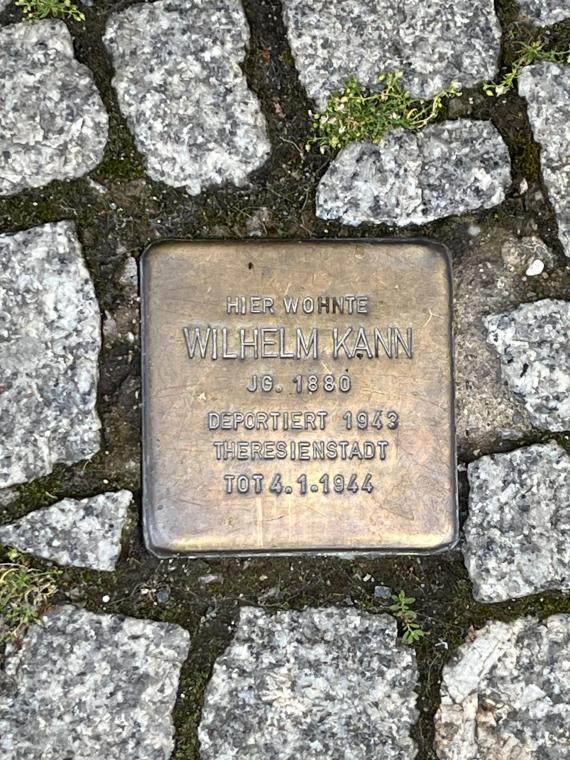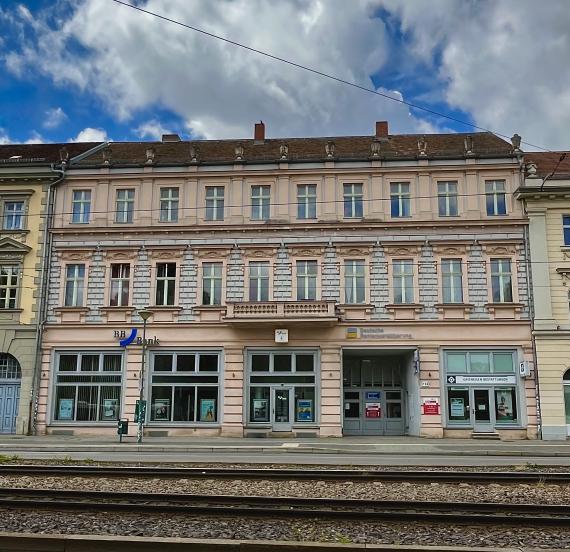Friedrich-Ebert-Straße 113
Brandenburg
14467 Potsdam
Germany
Wilhelm Kann was born into a well-known Jewish banking family in 1880 and exerted a considerable influence on Jewish life in Potsdam during his varied life.
His grandfather of the same name opened the W. Kann banking house at Nauener Strasse 32 (now Friedrich-Ebert-Strasse 113) in 1842, after moving to Potsdam from Eberswalde with his family, wife and three children in 1840. The shop was located opposite the old synagogue and the Jewish community center.
When Wilhelm Kann (senior) died, he left the bank and money exchange business to his son Julius Kann. Julius Kann married in 1877. He and his wife moved into the bank's house and had six children together, including Wilhelm Kann (Junior).
Wilhelm Kann (Junior) began an apprenticeship in the family business after completing his schooling at the royal „Viktoria-Gymnasium". After dropping out, he worked in other companies until his father (Julius Kann) died and he became the new head of the bank. In 1929, his marriage to Henni Bernhard, 11 years his junior, broke down. They had four children. The Great Depression forced Kann to close the bank. The bank disappeared from the commercial register in 1933. From then on, he devoted himself to community work and worked for the Reich Association of Jews in Potsdam. Kann was elected a member of the board of the Jewish community in Potsdam in 1940. From 1942, he was the representative of the Jews in Potsdam. His task was to communicate orders from the state police to Potsdam Jews. Shortly before his deportation in the late summer of 1943, the once wealthy banker lived in his parents' house in a modest 1.5-room apartment. On June 18, 1943, he was deregistered by the police and deported to Theresienstadt that same month. The city was thus considered „judenrein", as Wilhelm Kann was the last official representative of the Jewish community in Potsdam. Kann died of starvation typhus around a year after his deportation.


Add new comment